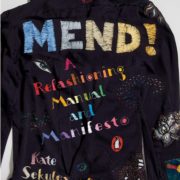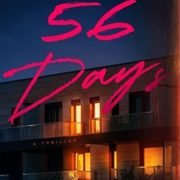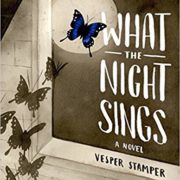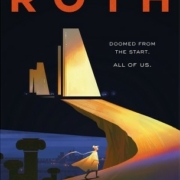Babel: An Arcane History by R. F. Kuang
In the large port city of Canton, a young boy is dying of cholera. His mother succumbed to the same disease days before, and he is almost glad that he will soon be joining her. As he lays in bed thinking about his short life, a stranger enters his house. The man holds out a bar of silver, speaks two words – one in French and one in English – and the boy begins to heal.
This is the opening scene of R. F. Kuang’s BABEL: AN ARCANE HISTORY. Set in the 1800s, BABEL presents a world at the height of the British Empire where magic is a tradable good. By using the language gaps in translated words, scholars are able to produce magical effects with engraved silver bars.
The boy is whisked back to England where he becomes the ward of this man, Professor Lovell. He is asked to choose a name that will help him assimilate into British society. He chooses Robin Swift, in honor of his favorite author, Jonathan Swift.
For the next few years, Robin is taught Latin and ancient Greek. He also learns that Professor Lovell has always been an influence in his life. Robin – whose family was extremely poor – grew up with an inexplicable British governess who taught him English. A governess hired by the professor.
Professor Lovell keeps Robin at arm’s length. His goal is to prepare Robin for the rigorous language training he will receive at Babel, the college in Oxford dedicated to producing magical silver.
Babel is the world’s center for translation and, by extension, magic. Students who graduate will most likely remain at Babel to continue translations or to maintain the networks of silver around the world.
The more unique the languages a person can translate are, the more important they are to Babel’s organization. Robin has the potential to be very valuable, because there are currently only two Asian-language translators at Babel – one of whom is Professor Lovell.
Robin and his fellow students are initially enchanted by the college. The four of them have all experienced hardship, but they find solidarity and companionship in each other.
However, as their studies progress, they learn more about the unfair system they are supporting. Their group is torn apart by their responses to Babel’s insular, England-first philosophy.
Similar to our world’s industrial revolution, this world is in the midst of a magical revolution. Laborers are forced out of their jobs as magic allows machines to work more efficiently. Countries are being left behind as the richer nations purchase their silver. And gifted linguists are taken away from their homelands to support Babel’s growing demand.
But an organization is working against Babel, stealing their silver and converting linguists to the cause. They are attempting to expose what is at stake if the college is allowed to remain the hub of all of the world’s magic.
Throughout the book, Robin is drawn deeper into this underground revolution. He becomes convinced that something drastic must be done to shake Babel’s foundation.
BABEL is a dense book, full of footnotes both real and fictional. The pace is rapid, keeping readers engaged through linguistics classes, arguments with Professor Lovell, and clandestine meetings with agents of the resistance.
At over 500 pages, the book is a commitment, but it is never dry. R. F. Kuang’s world building skills are excellent, and her magic system is incredibly unique. I will be thinking about BABEL for a long time to come.
Review by Alyssa Berry, Technical Services Librarian










